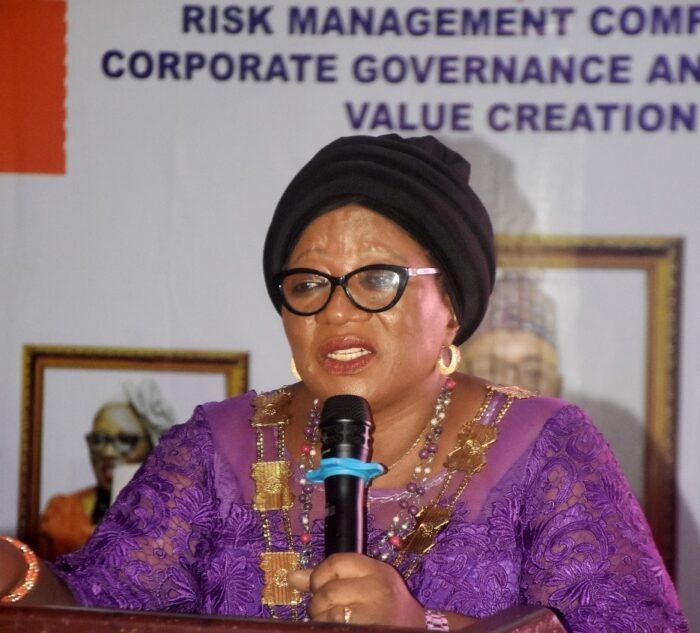








The financial sector is crucial for the economy and any major deviation affects it significantly, according to an article by Dr. B K Mukhopadhyay in The Sentinel Assam. Risk management plays a vital role in mitigating risks and ensuring the stability of the financial system. The article emphasizes the importance of regulators and policymakers remaining alert and implementing updated risk management processes. Detecting threats such as recession and slowing economic growth early is crucial. While the banking system has receded from immediate systemic failure, unknown factors still pose risks. Investment banks have transformed into licensed deposit-mobilizing banks and play a variety of financial services. The article highlights the need for global cooperation to prevent a recession and restore confidence in the market. It also suggests balancing increased spending with tax initiatives and focusing on helping poor economies. The International Monetary Fund (IMF) advises strong policy actions to mend the financial sector and stimulate effective demand. Continuous watch and global cooperation are necessary to protect the economy [7b1a7503].
The importance of effective risk management and corporate governance for economic growth and the role of people management in mitigating operational risks in banks is discussed in a previous article. The Chartered Institute of Loan and Risk Management of Nigeria emphasizes the crucial role of effective risk management and corporate governance in driving economic growth and stability. The institute highlights the significant impact of these practices on the overall economic stability and growth of a nation. Poor risk management can result in reputational damage, loss of investor confidence, and business failures. The article also highlights the need for citizens to be aware of risks in everyday life and the importance of risk management strategies in policymaking. The article concludes that harnessing human capital and strengthening governance through sustained organizational culture are key to managing operational risks in the future [9aa08881] [47342a56].
In Nigeria, the importance of corporate governance in driving economic transformation and diversification is emphasized. Okechukwu Enelamah highlights the challenges faced by Nigeria in achieving these goals, including the lack of continuity and poor implementation of economic plans and policies. He emphasizes the need for strong institutions in both the private and public sectors and the role of corporate governance in attracting investments, strengthening economic institutions, supporting micro, small, and medium-sized enterprises (MSMEs), fostering innovation, and improving accountability and transparency. Enelamah also addresses challenges such as political interference, ineffective oversight, and the need for capacity building. He calls for the adoption of the National Code of Corporate Governance (NCCG) in the public sector and the development of an index for ranking corporate governance in the public sector. Enelamah concludes by emphasizing that unassailable corporate governance is essential for Nigeria's economic transformation and diversification [01cb04d2].
In Zimbabwe, the CEO of FIRST Capital Bank, Tapera Mushoriwa, urges banks to adapt to the economic challenges facing the country. The depreciation of the Zimbabwean dollar against the US dollar has posed difficulties for businesses and individuals. Mushoriwa emphasizes the need for organizations, including banks, to adjust their strategies and operations to navigate the changing macroeconomic conditions. He highlights the increased dollarization in the market, particularly in the mining and agricultural sectors. The Reserve Bank of Zimbabwe governor, John Mangudya, suggests that banks should offer incentives to attract deposits and ensure that bank charges do not hinder the use of the banking sector by the public [d79167ee].
Meanwhile, in Fiji, the former Governor of the Reserve Bank of Fiji, Savenaca Narube, criticizes the growth reset package announced by the government, stating that the economy needs transformation rather than a reset. Narube argues that the current approach will only benefit the wealthy and calls for a clear economic and financial roadmap. He emphasizes the importance of transforming the economy by focusing on resource-based sectors and micro, small, and medium businesses. Narube urges the government to address the high cost of living, narrow the income gap, reduce poverty, and strengthen the foundation of the economy [e792668d].
In Sri Lanka, Governor Nandalal Weerasinghe highlights the provisions for independence in the old central bank law but emphasizes the need for qualified individuals with integrity for effective implementation. He points out weaknesses in governance and the process of appointments. The new law includes strong provisions to prevent political influence and ensure accountability [a801832e].
Dr. Sharmini Coorey, Advisor to President Ranil Wickremesinghe and former Director at IMF, delivered an oration at the 73rd Anniversary of the Central Bank of Sri Lanka. She commended the Central Bank's efforts in stabilizing the economy after a deep economic crisis and emphasized the importance of good governance in achieving price stability and prosperity. Dr. Coorey highlighted the need for sustained growth, fiscal discipline, an open trade regime, competitive markets, and adequate infrastructure. She also stressed the significance of transparency, accountability, and independence in the decision-making process of the Central Bank. Dr. Coorey suggested reducing the size of the Monetary Policy Board, strengthening the legal framework, and avoiding direct financing of the government by the Central Bank. She concluded that addressing governance problems is crucial for overcoming economic challenges and ensuring inclusive prosperity [60cdd54a].
President of the Fiji Institute of Chartered Accountants (FICA), Rajeshwar Singh, emphasizes the importance of recognizing the dedication and expertise of accountants on International Accountants' Day. Deputy Prime Minister and Minister of Finance, Professor Biman Prasad, highlights the crucial role of accountants in maintaining financial transparency and accountability, stating that trust is a cornerstone of good governance [d7f171d5].